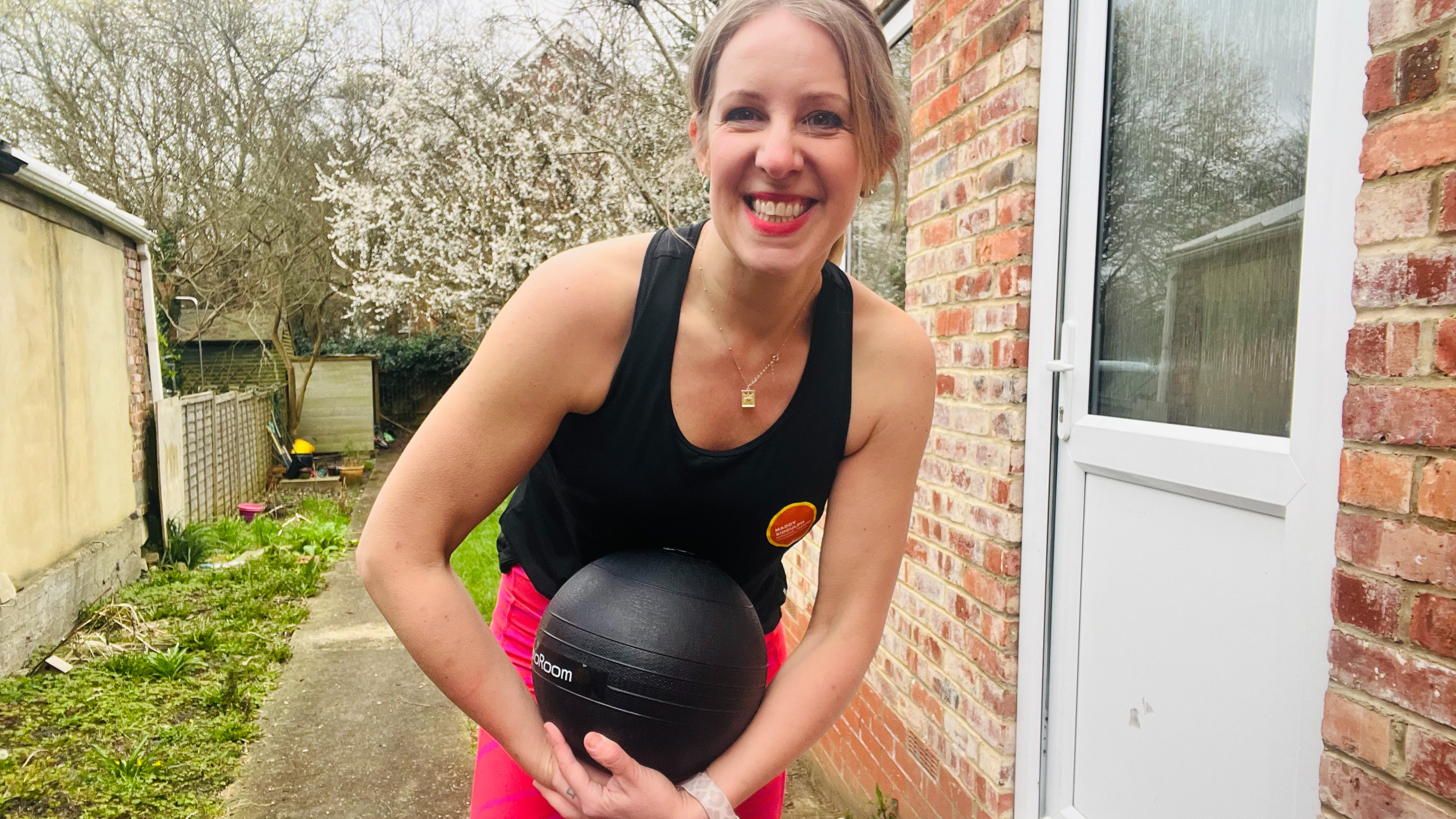What is stomach vacuuming and can it build abs?
We asked a personal trainer how to do stomach vacuum exercises and if it'll strengthen your core

If you've seen images of muscular people pulling in their bellies for bodybuilding competitions, you may find yourself asking: what is stomach vacuuming and can it get me abs like that?
Sure, you can use the best ab rollers in your workouts to train your core, a group of mid-body muscles that connect your upper and lower body, but it's not always clear whether more uncommon techniques like stomach vacuuming can help.
Abs and waistline can be a source of insecurity for some people, and it can feel as though you are bombarded with advertisements for "ten days to a flat tummy" every time you go online, but how realistic is this really?
We were curious to answer these questions too, so we recruited Sam Shaw, a personal trainer and the founder of Lemon Studios, to tell us more and demonstrate how to do a stomach vacuum with the correct form.

Sam Shaw is a certified personal trainer and the founder of Lemon Studios. He has trained several actors and television presenters and believes in a holistic approach to mental and physical health, incorporating exercise and nutrition.
What is stomach vacuuming?
Far from trying to fake a flat tummy, stomach vacuuming is the act of pulling in your abdominal muscles and controlling your breathing to improve the strength and tone of your deepest core muscles.
While many of us might do something similar, or "suck it in" in an attempt to appear slimmer, proper stomach vacuuming is quite physically challenging. It can take some practice, so we asked Shaw to explain the process.
"The stomach vacuum exercise involves contracting and holding in your stomach muscles while breathing deeply. The goal is to strengthen the transverse abdominis muscle, the deepest layer of the abdominal muscles, creating a slimming effect on the waistline."
Get the Fit&Well Newsletter
Start your week with achievable workout ideas, health tips and wellbeing advice in your inbox.
How to do stomach vacuums


If you want to try stomach vacuuming, Shaw has detailed the steps you need to take to engage the correct muscles and control your breathing for maximum effect.
- Stand or sit upright with your back straight.
- Exhale completely and pull your stomach in as if you were trying to get your belly button to touch your spine.
- Hold this position for 10-20 seconds while breathing normally.
- Release back to the starting position and repeat three times.
Does stomach vacuuming work?
It's fair to wonder if this practice can really work your abs, especially since you're not doing sit-ups to engage your mid-section or kettlebell swings that work your core for stability.
Shaw says that he first started doing stomach vacuum exercises during his bodybuilding days, but found that it's a "popular breathing technique to strengthen your abdomen muscles and is a good way to help with core muscle control.
This is backed up by a randomized controlled trial in the International Journal of Sports and Physical Therapy, which found that activation of the transverse abdominis (the muscles stomach vacuuming aims to tone) can improve core stability and reduce lower back pain.
More recently, a report in the International Journal of Environmental Research and Public Health looked at the effects of the "abdominal drawing-in maneuver" — which is similar to a stomach vacuum but performed lying down.
The researchers found that this stomach vacuuming variation can help strengthen deep core muscles and reduce the pain triggered by extended periods of sitting, which you could combine with deep squats to compound the effects.
"It is important to note that this exercise should be performed carefully or under the guidance of a qualified fitness professional, as incorrect form or excessive strain can lead to injury or discomfort," Shaw adds.
Does holding in your stomach help flatten it?
"While holding in your abdomen muscles does engage your core muscles and pulls in your stomach, it won't have a long-lasting effect in terms of flattening your stomach," explains Shaw.
"Focusing on dropping body fat and building core strength through exercise is a long-lasting way to help flatten and tone your midsection,” he adds.
You could incorporate stomach vacuums into your routine alongside tradtional core strengthening exercises or consider taking up core yoga to build up your abdominal muscles.
Can ab workouts slim your waist?
If you're trying to work out how to get a slim waist, regular stomach vacuums alongside core-focused exercises, like an ab roller challenge, can be a great way to start. However, Shaw notes that this won't get rid of excess body fat.
"Ab workouts can help tighten and strengthen the abdominal muscles, but they won't help you get rid of excess body fat, which is what will help you trim your waist," he explained.
You can't spot-target fat around your stomach, so you'll need to focus on other fat-burning techniques. Maintaining a calorie deficit, where you burn more energy than you take in, plays a crucial role.
But you can also use high-intensity HIIT workouts for fat loss to raise your heart rate, strengthen your muscles, and boost your metabolism (the energy you burn during the day) in just five moves without weights.

Lou Mudge is a Health Writer at Future Plc, working across Fit&Well and Coach. She previously worked for Live Science, and regularly writes for Space.com and Pet's Radar. Based in Bath, UK, she has a passion for food, nutrition and health and is eager to demystify diet culture in order to make health and fitness accessible to everybody.
Multiple diagnoses in her early twenties sparked an interest in the gut-brain axis and the impact that diet and exercise can have on both physical and mental health. She was put on the FODMAP elimination diet during this time and learned to adapt recipes to fit these parameters, while retaining core flavors and textures, and now enjoys cooking for gut health.
-
 This might be your last chance to get my favourite waterproof walking shoe, and it's 25% off
This might be your last chance to get my favourite waterproof walking shoe, and it's 25% offDeal These Adidas Gore-Tex shoes are the most watertight I've tested
By Lou Mudge
-
 I tried wall balls for 30 days and the results surprised me
I tried wall balls for 30 days and the results surprised meTry this fitness challenge to boost total body strength
By Maddy Biddulph